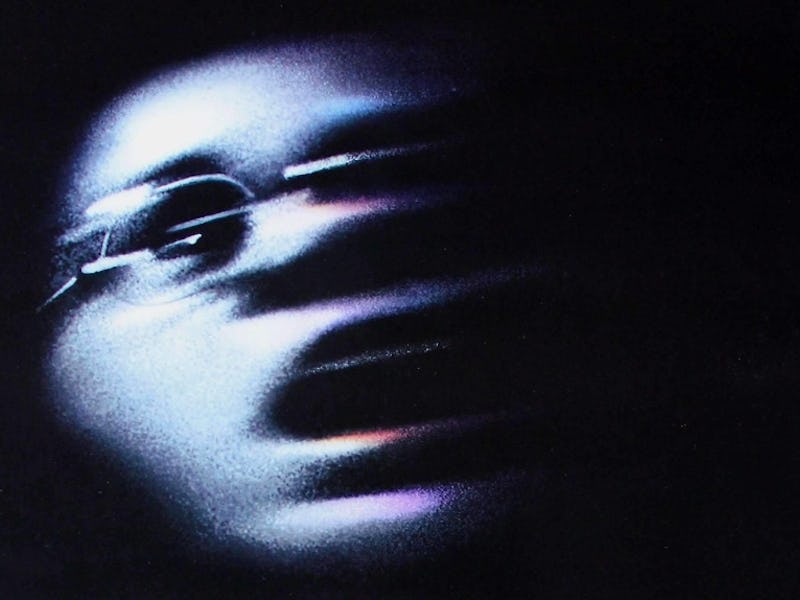You need to watch the most spine-chilling sci-fi thriller before it leaves HBO Max this week
This influential sci-fi movie dares to ask a simple question: What happens while we die?

What happens while we die? For thousands of years, humankind has feared what awaits on the other side of life. Past and present civilizations and religions all function to find answers because not knowing anything is more than horrifying.
But one stone-cold classic feature film from 1990 dared to imagine something even scarier: What happens while we die?
Taking its name from the Bible story, this movie isn’t just one of the most imaginative musings on the afterlife ever produced. It’s a terrifying, almost sickening descent into the bowels of death that would feel cursed if the people who made it didn’t look back on it with fondness.
And it’s a movie you need to watch before it leaves HBO Max on July 31.
In Jacob’s Ladder, Tim Robbins stars as Jacob Singer, a divorced Vietnam War veteran still mourning the death of his son Gabe, who appears in flashbacks and visions played by Macaulay Culkin. (Jacob’s Ladder was released on November 2, 1990, just two weeks before the November 16 release of Home Alone established Culkin as the child star of the decade.) Now living in New York with his girlfriend Jezebel (Elizabeth Peña), Jacob begins to suffer from intense hallucinations of creatures, demons, and omens of the future.
The death of a war buddy encourages Jacob to regroup with his brothers in arms to find out what happened — and what happened to them — on one dark day in the jungles of ‘nam.
Released to a muted reception — its box office gross was just $26.1 million against a $25 million budget — Jacob’s Ladder has stood the test of time as an influential film even when its place in the general canon is that of an overlooked gem. From the very beginning, Jacob’s Ladder feels wrong. Director Adrian Lyne masterfully immerses the audience into Jacob’s perspective, imbuing a constant paranoia and discomfort into the audience. By the time a lizard monster has sex with Jezebel at a house party, you know that Jacob’s Ladder is an unholy movie.
Tim Robbins in Jacob’s Ladder.
All bets are off late in the film when Jacob is submitted to a hospital that feels like entering Hell itself. The sequence has become arguably one of the most influential moments of cinema in the 20th century. Through smart composition and editing, its clearly defined atmosphere formed the very language used by other filmmakers; see Black Widow’s visions in Avengers: Age of Ultron to see how far this movie’s reach goes. Virtually the whole Silent Hill video game franchise and A24 horror library owe a debt to Jacob’s Ladder due to its raw imagination — and how best to show it.
What stands out about Jacob’s Ladder over 30 years later is its unambiguity. While the movie draws viewers in by questioning Jacob’s open-ended visions, the movie ultimately provides a clear answer to what is going on in the end. These days prestige horror films prefer ambiguity, which isn’t inherently bad or good; it all amounts to what an artist wants to say and how well they communicate their intended message.
In what seems like defiance to convention three decades after its own time, Jacob’s Ladder survives now because of how well it lands on its thesis and not because it keeps audiences seeking more answers. For a movie that hasn’t been referenced to death but is also old enough to have back problems if it were a living human person, it’s impressive how Jacob’s Ladder remains spry and fresh with its execution.
Jacob’s Ladder, which stars Tim Robbins and Elizabeth Peña, is streaming now on HBO Max until July 31.
In 2020, director Adrian Lyne reflected on Jacob’s Ladder as a movie that needs to be seen at least twice. Citing influence from a short film based on Ambrose Bierce’s Incident at Owl Creek, Lyne told ComingSoon.net last year: “I was always fascinated by that idea of not watching what you think you’re watching ... Jacob’s Ladder was a movie that sort of needed to be seen twice, because I think if you just saw it the first time, you spent a lot of time trying to work out what you’ve seen.”
Also influenced by artist Francis Bacon, Lyne said: “They were just interesting because they’re blurred and grotesque, but you can’t quite see what’s going on. You have to fill it in with your imagination, and I think that’s much more interesting and frightening than seeing images that you’ve seen before.”
Jacob’s Ladder is streaming now on HBO Max until July 31.